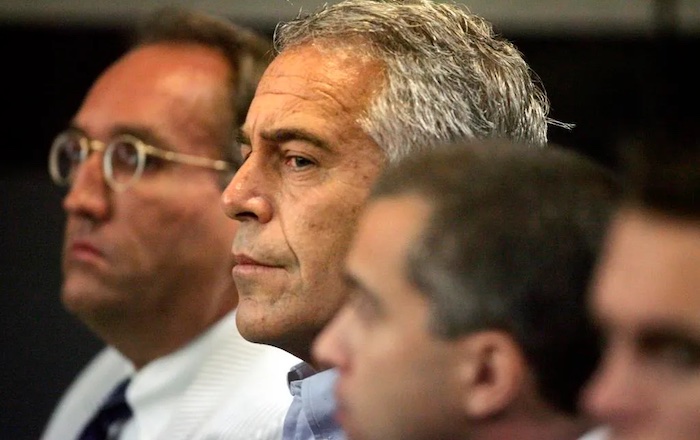Despite the passage into law in 2015 of the Violence Against Persons Prohibition (VAPP) Act, cases of domestic, and sexual violence have been upswing across states, even though, the main thrust of the law was to eliminate violence in private and public life, prohibit all forms of violence against person, provide maximum protection and effective remedies for victims and punishment of offenders and other related matters. report that beside Katsina, Kano, Taraba, and Zamfara states that have not domesticated to the VAPP Act, there is a lot more needed nationwide to stem the tide of savagery.
Grotesque and bizarre best describes how a man trained to save lives resorted to not only introducing a minor to pornography, but also serially defiling her thereby taking away her innocence.
A minor is an individual under the age of full legal capacity. Section 29 (4) (a) of the 1999 Constitution, defines full age as the age of 18 years and above. Consequently, anyone from 17 and below is regarded as a minor.
Not only did the 16-year-old victim look up to her defiler as a father figure, she is also a blood relative of her adversary’s wife – her niece.
After all the legal gymnastics that the defence team put up at an Ikeja Sexual Offences and Domestic Violence Court, in a bid to sway the presiding judge, Justice Rahman Oshodi, last Tuesday, handed to the embattled Medical Director of Optical Cancer Care Foundation, Dr Olufemi Olaleye, a life imprisonment sentence.
Thanks to the excellent job done by the prosecution team in proving the two counts of defilement and sexual assault by penetration against Olaleye.
Before handing down the verdict, Oshodi berated the randy medic thus: “You are a dangerous offender, and you must be ashamed. You acknowledged that you are a sex addict in your confession but came to this court and told lies. You showed no remorse, and it shows that you are a dangerous man. The survivor, to your knowledge, is a child, but you forced her to watch pornography, rub her breasts and put your penis in her mouth. You penetrated her repeatedly,†Oshodi said.
The jurist added: “By the laws of Lagos State, I am compelled to hand you a sentence of life imprisonment on each count of your offence, but your counsel has said that you are a first-time offender and a doctor of cancer patients. I hereby sentence you to life imprisonment on counts one and two,†he said.
Considering the life-long scars that victims of domestic and sexual violence bear across the country, Olaleye’s conviction represents only a tiny drop of water in the ocean. Nevertheless, it sends a strong message to other perpetrators that the wheel of justice grinds slowly, but exceedingly fine, especially with the judge directing that Olaleye should have his name written in the Sexual Offences Register of the Lagos State government.
As if in sync with Oshodi’s verdict, a judge of the Rivers State High Court, Justice Eberechi Wike, insisted that the current punishment meted to people found guilty of defiling minors is not drastic enough hence her advocacy for them to be amputated.
Justice Wike, who is the wife of the immediate past Rivers State Governor, Nyesom Wike, while speaking last Tuesday on the sidelines of the 2nd National Conference of Family Court Judges, Magistrates, and other Family Court Practitioners in Port Harcourt, Rivers State, stressed that the current punishment does not deter sexual offenders from molesting minors.
Wike roused society to ramp up punishments for defilers beyond life imprisonment, or a 14-year jail term saying: “We should do much more. I think we should do something that will be really drastic, that will make them think twice before they do that,†she said.
“I cannot think of anything better than having in place a piece of legislation that says that whatever part of your body that you use on a child while defiling the child should be cut off. If it is your finger; if it is your mouth, if it is your private part. I think men will take it more seriously when you come up with such legislation. I hope a man in the House of Representatives or the Senate will sponsor a bill like that.â€
Widespread abuse mirrors lax implementation of laws
Except for Katsina, Kano, Taraba, and Zamfara states, all other states and the Federal Capital Territory (FCT) have assented to the Violence Against Persons Prohibition Act (VAPP), which was passed in 2015.
In addition, Lagos and Ekiti states have Protection Against Domestic Violence Law and Sexual and Gender-Based Violence (SGBV) Prohibition Law respectively, and the laws also have similar provisions in the VAPP.
All these notwithstanding, the existence of these legal instruments has not reduced cases of SGBV across the country.
For instance, in Lagos, about 5, 624 cases of domestic and sexual violence were recorded between August 1, 2022, and July 31, 2023.
 Mirabel Centre for sexual abuse survivors in Lagos
Mirabel Centre for sexual abuse survivors in Lagos
The youngest victim of sexual violence within the period under review was an 18-month-old baby, while the oldest was a 79-year-old woman.
It was also a nightmare for the mother of a three-month-old baby girl, who was abused on May 27, 2022, in Nasarawa State.
The mother, who woke up at night to discover that her baby and mobile phone were missing, recalled: “I woke up at about 3:00 a.m. and found that my baby was missing. I checked my phone which was also close to me before I slept, but it was also missing.â€
After the entire village embarked on a search party, she explained: “My baby was found lying in an uncompleted building with her pants kept aside. Everywhere across her private part was blood and then we rushed her to the hospital,†she said.
The Guardian gathered that the baby has since undergone three surgical sessions at the Jos University Teaching Hospital as a result of the incident.
In another case, a man, an indigene of Kaduna State, who resides in Garaku, in the Kokona Local Council of Nasarawa State, went to the house of an 80-year-old woman, who lives alone, and sexually abused her.
According to the Nasarawa State Police Command, the suspect, “one Dan’Asabe Eddo, a 43-year-old man from Kubasha Village, Kagarko Local Council in Kaduna State, but a resident of Garaku, Nasarawa State, nocturnally went into the residence of the octogenarian, who stays alone at the same village, and forcefully had carnal knowledge of her.
Apart from the two cases, Nasarawa State recorded 48 sexual assault cases between January and April 2023, with suspects at different stages of prosecution.
Findings by The Guardian reveal an upsurge in the number of SGBV cases across the country. Interestingly, a significant number of these cases go unreported, while poor complainants tend to seek the services of the Legal Aid Council (LAC), which is reportedly underfunded.
From January 2022 till date, a total of 302 SGBV cases have been reported in Abia State. This comprises domestic violence, sexual violence, harmful traditional practices, and victims of matrimonial cases. A breakdown of the figure shows that 59 of these cases are that of child abandonments (35 kids abandoned by their fathers, while 24 were abandoned by their mothers), 18 paternity disputes; 10 teenage pregnancies, 14 child defilements, eight early child marriages, 81 domestic violence, 22 harmful traditional practices, 13 sexual abuse, and 72 matrimonial matters (totaling 302).
In Oyo State, reports from the gender violence response team showed a consistent increase in the number of women, who reported violence of all forms. The figure in the state rose from 132 in 2019 to 768 in 2020.
In Kano State, no fewer than 70 cases of sexual assaults, including rape of minors and forced sexual harassment are recorded daily.
Similarly, in Bauchi, the state recorded 590 cases while 737 suspects were arrested in connection with SGBV between 2020 and September 2023.
A feeble fight back
Even though many states have domesticated the VAPP Act, and few others set up Sexual Assault Referral Centres (SARCs), where survivors are taken care of, there is the absence of a family court to give children succour in most cases.
Be that as it may, states like Lagos, Nasarawa, Oyo, and a few others have taken the bull by the horns. For instance, Lagos State created the Domestic and Sexual Violence Agency (DSVA), which coordinates all activities aimed at fighting against domestic and sexual violence.
The administration of Governor Seyi Makinde of Oyo State, in 2021, founded the Oyo State Abiyamo Sexual Assault Referral Centre (SARC), which oversees the Oyo State Sexual and Gender-Based Violence Response Team (OYO SGBVRT).
 Lagos State Domestic and Sexual Violence Agency, Alausa, Ikeja
Lagos State Domestic and Sexual Violence Agency, Alausa, Ikeja
In 2022, the state followed up with the VAPP law, which stipulates sanctions for perpetrators of all forms of Gender-Based Violence. The birth of the first state-owned SARC through a partnership between the government and UNFPA provided an opportunity for women, who have experienced violence either in the short or long term to have the right to bodily autonomy and access to survivor-centred care.
With the centre, victims were assured of confidentiality, and well-coordinated services, including psychosocial support. The state also assured the citizens of the government’s dedication to put a stop to SGBV, and prevent and protect victims. This was to encourage survivors to speak up, thereby improving the state’s data on SGBV.
Regrettably, the menace in Oyo State is usually under-reported due to so many reasons, one of which is the trauma that the survivors go through in the course of achieving justice.
According to a representative of the United Nations Population Fund (UNFPA), Ulla Elisabeth Mueller, out of the estimated over 7.8 million population in the state, the fifth most populous state in Nigeria, 17.1 per cent of women have experienced physical violence since age 15.
She further disclosed that 3.2 per cent of women have experienced sexual violence, and 13 per cent have experienced spousal violence.
It was in a bid to give succor to victims of domestic violence that the Nasarawa State government recently inaugurated a Sexual Assault Referral Centre (SARC) in Lafia, following a spike in the spate of sexual violence.
At the inauguration, Governor Abdullahi Sule, represented by the Commissioner for Women Affairs and Social Development, Hajiya Aisha Rufai-Ibrahim, explained that the centre was established to address rising cases of gender-based violence, in demonstration of the government’s commitment to protecting the rights of women and children.
The wife of the governor, Hajiya Silifat Abdullahi Sule, in her remarks, said that the centre when fully operational would give hope to victims of sexual violence, as well as treat and give them the needed support to get justice.
She assured that the state government would continue to pay serious attention to issues of gender-based violence and do everything possible to tackle the menace.
While informing that records have shown that family members and neighbours were the perpetrators of most cases of sexual abuse in recent times, the governor’s wife called on parents not to leave their children under the care of anybody, no matter the relationship without monitoring.
With the existence of the Abia State “Violence Against Persons Prohibition (VAPP) Act,†which kicks against gender-based violence, as well as, the Abia State Child Rights Law, and its gender policy, the state is on the road to achieving its target of “zero tolerance in GBV.
“We also have Gender Based Violence Desk Officers in all ministries, including Gender Based Violence Technical Working Group across the 17 local councils and we are greatly assisted by the UNFPA, Nigeria Academy of Science, and the Federal Ministry of Women Affairs in the fight against SGBV,†said a source from the state Ministry of Women Affairs and Poverty Alleviation.
Things are also looking up in the Sunshine State, as the Ondo State Agency Against Gender-Based Violence (OSAA-GBV), through the VAPP, has recorded significant progress in combating GBV in the state.
The VAPP law, which was signed into law in July 2021, by Governor Oluwarotimi Akeredolu, was designed to impose stricter penalties on perpetrators of gender-based violence and offer victims treatment.
OSAA-GBV headed by Executive Secretary, Mrs. Bolanle Afolabi, has also established strong legal and institutional mechanisms to ensure speedy dispensation of justice, even as it has played a pivotal role in the implementation of the VAPP law, which criminalises rape, sexual assault, domestic violence, and female genital mutilation.
By working closely with the media, law enforcement agencies, judicial officers, community leaders, religious bodies, and other stakeholders to enlighten the populace about the heinous nature of GBV, the agency has facilitated the arrest and prosecution of perpetrators, thereby sending a strong message that gender-based violence is no longer tolerated in the state.
Governor Yahaya Bello of Kogi State, on June 22, 2022, while signing the VAPP Bill into law, noted that ending GBV in the state is a task that must be done.
The law in summary seeks to protect women, children and other persons under the perpetrator’s care, destitute and without any means of subsistence.
Among other things, the law addresses issues including emotional, verbal, and psychological abuse; forced isolation from family and friends; sexual assault, sexual exploitation, sexual abuse; sexual intimidation; female circumcision, domestic relationship, and economic abuse.
In Edo State, the VAPP Bill sent to the state House of Assembly (EDHA) suffered a setback in the Fourth and Fifth assemblies, but was passed by the Sixth Assembly, and signed into law by Governor Godwin Obaseki, in 2019.
According to the Chairperson of the State Gender-Based Violence Management Committee, Mrs Betsy Obaseki, the state recently secured the conviction of a 57-year-old man, who was sentenced to 14 years imprisonment without an option of fine for sexually abusing a minor.
The sexual offender, Michael Ogoke, was arraigned by the police before an Oredo Magistrate Court, on May 11, 2021, on a one-count charge of rape and was subsequently sentenced to 14 years imprisonment by Magistrate E. O Aimofumeh.
Mrs Obaseki said that the government remains committed to reducing incidences of sexual and domestic abuse and ensuring justice for all survivors.
Gender-based violence harmful to society’s advancement

According to experts, gender-based violence does a lot of harm to the society as it constitutes a major impact on every sector of the economy, and significantly constrains women’s autonomy, as well as opportunities for the girl child.
That explains why a former chairman of Abia State chapter of the International Federation of Women Lawyers (FIDA), Mrs Chidinma Alozie said that the VAPP Act, which provides a more robust legal framework for implementing justice for gender-based issues including rape must be fully implemented for it to effectively serve its purpose.
On her part, the Director, Abia State Chapter of the National Human Rights Commission (NHRC) Uche Nwokocha, disclosed that the poorest of the poor in the society dominate those in need of their services as reflected in the 835 cases/complaints against human rights violations, or allegations so far filed this year.
She noted that a situation where the poor, especially women and girls are so abused in the society does not give everyone ample opportunity to contribute to national development.
For the wife of Oyo State Governor, Mrs Tamunominini Makinde, no efforts should be spared in ensuring that the VAPP law protects the rights of women, children, and all vulnerable persons, irrespective of their gender.
The Oyo State VAPP Law 2020 provides a legal framework that protects victims of female genital mutilation, denial of inheritance and succession rights, and forced marriage among others.
Also sharing her perspectives, the Chief Executive Officer and Founder of the Chachavivi Women and Girl Child Development Foundation, Halima Oiza Sadiq, said that the negative effects of gender violence on women and girl child have become a source of concern to communities.
Sadiq, who spoke at a one-day training programme in Lokoja, organised to end GBV in Kogi State, stressed that youth leaders, religious and community leaders, as well as security agents across communities would be trained as gender-based violence champions in their respective communities where they would serve as first responders and act to end the menace.
Revving up efforts to end malaise
Because of the peculiar nature of the GBV, a development expert Friday Ogazi, insists that the government and civil societies must rely on standard tools and methodology for data collection and in analysing gender-based issues, even as efforts must be channeled towards the use of uniform classification of SGBV incidents across service providers, as well as, ensuring the use of reliable information at all times.
Ogazi identified intimate partner violence, non-partner sexual abuse, female genital mutilation, sexual exploitation abuse, child abuse, female infanticide, and child marriage as some major forms of SGBV plaguing the country.
While lamenting that the inability to have accurate data and reporting of GBV has limited the fight against SGBV, Ogazi emphasised the importance of identifying and analysing issues put forward by survivors.
Even though available data has shown a steady increase in the reportage of gender-based violence over the past five years, the Executive Secretary of the Lagos State Domestic and Sexual Violence Agency, Titilayo Vivour-Adeniyi said that society is yet to scratch the surface of the malaise.
Vivour-Adeniyi said going by research, as well as societal perceptions, it is believed that sexual and gender-based violence offences are some of the most underreported crimes, not just in Lagos, but indeed around the world.
“It is said that for every one case that is reported, six have gone unreported. This is as a result of various factors, including stigmatisation, low level of awareness about support services that exist for survivors to take advantage of, weak institutions, patriarchy, etc,†she noted.
According to her, gender inequality and patriarchy are at the heart of SGBV and these are deep-rooted notions and norms that have been passed from generation-to-generation.
“Parents and guardians play a critical role in laying the right foundation for society, including institutions, such as ours (Lagos State Domestic and Sexual Violence Agency) to build upon. Parents, like other stakeholders, need help,†she said, adding, “they need to be trained on their roles in mitigating and reducing the likelihood of their children being abused. They need to know how to detect signs of child abuse, profile abusers, and know steps to take to report such.
“The truth is that there is a knowledge gap in this area. One of the ways that we are closing that gap is by engaging parents via our Parents Association Conferences, which are done in partnership with the Office of Education Quality Assurance, Vivour-Adeniyi said.
She continued: “Through interactive workshops, parents are taken through the rudiments of parenting, the concept of safeguarding and child protection, child abuse, responding to child protection concerns, and support services that exist, which they can take advantage of.
Safeguarding and child protection is everyone’s business. All of us have a critical role to play in ensuring that our children are safe and protected in their homes, places of learning, worship, and even at recreational centres.
“The society must play its role as a watchdog. We must all be concerned about the safety and protection of the child next door. It is a collective responsibility. Members of the society are encouraged to see themselves as mandated reporters; if they see something, they must say something and do something.
“The government must create an enabling environment for children to be safe at all levels. Relevant laws and policies must be enacted and fully implemented. The letters of these laws should come alive and abusers must be held accountable. This is critical in serving as deterrence. Relevant stakeholders, including the child protection services, law enforcement, medical personnel, justice sector, and non-governmental organisations working in this space should continue to work in synergy,†the executive secretary said.

































 Mirabel Centre for sexual abuse survivors in Lagos
Mirabel Centre for sexual abuse survivors in Lagos Lagos State Domestic and Sexual Violence Agency, Alausa, Ikeja
Lagos State Domestic and Sexual Violence Agency, Alausa, Ikeja